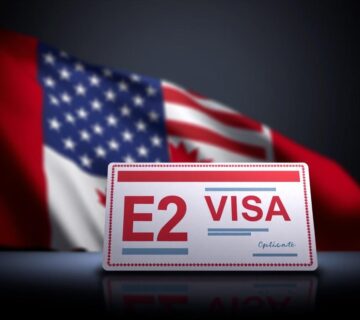Table of Contents
Introduction
Starting a business in British Columbia (BC) can be an exciting and rewarding endeavor, thanks to the province’s thriving economy, diverse market opportunities, and supportive business environment. However, ensuring the success of your venture requires more than just a great idea—it involves adhering to legal regulations and processes that establish your business on a solid foundation.
Whether you’re launching a small home-based business or a larger corporation, understanding the legal requirements is essential to avoid costly mistakes and to build credibility with customers, partners, and investors. In this guide, we’ll walk you through the necessary steps to legally start your business in BC, from choosing the right business structure to obtaining the required licenses and permits. By following these guidelines, you’ll be well on your way to turning your entrepreneurial dream into a thriving reality.
The Basics of starting a business in British Colombia
Before diving into the legal formalities, it’s crucial to understand the fundamentals of starting a business in British Columbia. One of the first decisions you’ll make is choosing the right type of business structure. The structure you select will impact your taxes, legal responsibilities, and how you manage your business. Below are the most common options:
Sole Proprietorship
- Definition: A simple structure where the business and the owner are considered the same legal entity.
- Pros: Easy to set up, minimal paperwork, and full control over the business.
- Cons: Personal liability for all debts and obligations of the business.
Partnership
- Definition: A business owned and operated by two or more individuals.
- Pros: Shared responsibilities, easier access to resources, and combined expertise.
- Cons: Shared liability and potential for disputes between partners.
Corporation
- Definition: A separate legal entity that is distinct from its owners (shareholders).
- Pros: Limited personal liability, easier to raise capital, and potential tax advantages.
- Cons: More complex setup and higher ongoing compliance requirements.
Cooperative
- Definition: A business owned and democratically operated by its members for their mutual benefit.
- Pros: Shared control and profits among members.
- Cons: Limited scalability and less common structure.

Factors to Consider When Choosing a Structure in Business in British Columbia
- Size and scale of your business.
- Long-term goals for growth and expansion.
- Level of personal liability you’re willing to accept.
- Tax implications and reporting requirements.
By understanding these basic structures, you can make an informed decision that aligns with your business goals and legal obligations. With this foundation in place, you’re ready to move on to registering your business name and completing other necessary steps.
Business Licensing and Permits
To operate legally in British Columbia, obtaining the necessary business licenses and permits is crucial. The specific licenses you need depend on the type of business and its location. For example, a restaurant will require health permits, while a construction company may need special trade permits. Start by applying for a general business license from the municipality where your business is located. If your business operates across multiple locations, you’ll need licenses for each municipality. Additionally, some industries require provincial or federal permits, such as liquor licenses or environmental approvals. Ensuring compliance with these requirements not only avoids legal issues but also builds trust with customers and partners.
Federal and Provincial Tax Requirements
When starting a business in British Columbia, understanding and fulfilling your tax obligations is a critical step. Both federal and provincial governments have specific requirements to ensure businesses operate legally and meet their financial responsibilities.
Registering for a Business Number (BN)
- A Business Number (BN) is a unique identifier issued by the Canada Revenue Agency (CRA).
- It’s required for handling taxes, payroll, and other government programs.
- You can register for a BN online through the CRA website or by mail.
GST/HST Registration
- If your business earns more than $30,000 annually, you must register to collect Goods and Services Tax (GST) or Harmonized Sales Tax (HST).
- Registering allows you to charge GST/HST to customers and claim input tax credits for expenses.
Provincial Tax Requirements
- British Columbia has specific tax regulations, such as the Provincial Sales Tax (PST).
- Depending on your business type, you may need to register for PST and file regular returns.
Payroll Deductions (If Hiring Employees)
- As an employer, you’re responsible for deducting income tax, Canada Pension Plan (CPP) contributions, and Employment Insurance (EI) premiums from employee wages.
- These amounts must be remitted to the CRA on a scheduled basis.
WorkSafeBC Coverage
- If you employ staff, you’re required to register with WorkSafeBC to provide workers’ compensation coverage.
- This protects employees in case of workplace injuries and ensures compliance with provincial labor laws.
Filing Taxes
- Businesses must file annual tax returns with the CRA.
- Sole proprietors report business income on their personal tax returns, while corporations file separately.
By meeting these federal and provincial tax requirements, you establish your business as a compliant and trustworthy entity, paving the way for sustainable growth and financial stability.
Federal and Provincial Tax Requirements for Business in British Columbia
| Requirement | Description | How to Register/Comply | Who It Applies To |
| Business Number (BN) Business in British Columbia | A unique identifier for tax and government-related programs. | Register online via the CRA website or by mail. | All businesses. |
| GST/HST Registration | Collect and remit Goods and Services Tax (GST) or Harmonized Sales Tax (HST). | Register online through the CRA or by phone. | Businesses earning over $30,000 annually. |
| Provincial Sales Tax (PST) | Collect and remit PST on eligible goods and services. | Register via the BC government website. | Applicable to businesses selling taxable goods/services. |
| Payroll Deductions | Deduct income tax, CPP, and EI from employee wages and remit to CRA. | Set up a payroll account with the CRA and submit remittances regularly. | Businesses with employees. |
| WorkSafeBC Coverage | Workers’ compensation insurance to protect employees in case of injuries. | Register on the WorkSafeBC website and maintain coverage. | Employers with staff. |
| Tax Filing | Submit annual tax returns to report income and expenses. | Sole proprietors file on personal returns; corporations file separately via the CRA. | All businesses. |
The table above summarizes the key federal and provincial tax requirements for starting a business in British Columbia. It outlines the essential obligations, such as registering for a Business Number (BN), GST/HST, and Provincial Sales Tax (PST), as well as managing payroll deductions and WorkSafeBC coverage if you employ staff.

Incorporating Your Business
Incorporating your business in British Columbia is an excellent option if you want to create a separate legal entity for your company. Incorporation offers benefits such as limited personal liability, tax advantages, and increased credibility. However, it also involves more complex regulations and responsibilities compared to other business structures.
Benefits of Incorporation
- Limited Liability: Protects your personal assets from business debts and obligations.
- Tax Advantages: Access to lower corporate tax rates and potential tax deferrals.
- Credibility and Access to Capital: Increases trust with customers, suppliers, and investors, making it easier to raise funds.
Steps to Incorporate in BC
Choose a Unique Name: Ensure your business name complies with BC Registry Services’ requirements and is not already in use.
File a Name Request: Reserve your business name through the Name Request application.
Prepare Incorporation Documents:
- Articles of Incorporation: Define the rules governing your company.
- Incorporation Agreement: Outline agreements between company founders.
- Register with BC Registry Services: Submit incorporation documents online or by mail and pay the applicable fee (typically around $350).
- Obtain a Business Number (BN): After incorporation, register with the Canada Revenue Agency (CRA) for a BN to handle taxes.
Ongoing Responsibilities of a Corporation
- File annual reports with the BC Registry Services.
- Maintain updated corporate records, including shareholder and director information.
- Submit annual tax returns to the Canada Revenue Agency.
Professional Assistance
Incorporating can be a complex process, especially for first-time entrepreneurs. Consulting a lawyer or accountant can help ensure that your documents are prepared correctly and your business complies with all legal requirements.
Incorporation provides significant advantages for Business in British Columbia planning to grow or seeking liability protection. However, it’s essential to weigh the additional responsibilities and costs to decide if this structure aligns with your goals.

Zoning and Location Compliance
Ensuring your Business operates in a suitable location is a critical step in the legal setup process. British Columbia has specific zoning and location requirements that must be adhered to, depending on the type of business and its operations. Here’s what you need to know:
Understanding Zoning Bylaws
Zoning bylaws are local government regulations that dictate how a piece of land can be used. They determine whether your business location is suitable for your intended activities. To comply with these rules:
Consult Local Zoning Maps:
Visit your municipal or regional government’s website to access zoning maps and verify that your intended location aligns with the permitted uses.
Confirm Permitted Uses:
Ensure that the zoning classification for your location explicitly allows for your type of business (e.g., retail, manufacturing, or office-based work).
Apply for Rezoning (if required):
If the zoning doesn’t match your business needs, you may need to apply for rezoning, which can be a lengthy process involving community consultation and council approval.
Home-Based Business Regulations
If you plan to operate a business from your home, specific rules may apply, including:
- Restrictions on Operations:
Many municipalities restrict the type and scale of activities in residential areas, such as limits on customer visits or employee presence.
- Signage Rules:
Home-based businesses often face restrictions on outdoor advertising to maintain the residential character of the neighborhood.
- Additional Permits:
You might need a home-based business permit, even if your operation aligns with local zoning bylaws.
Lease Agreements and Landlord Considerations
For businesses leasing commercial space:
- Review Lease Terms:
Confirm that your lease agreement explicitly permits your intended use of the space.
- Landlord Approval:
Obtain written consent from your landlord if modifications or renovations are required to meet zoning or operational standards.
Steps to Ensure Compliance
- Contact Local Authorities: Reach out to your municipality or regional district’s planning and zoning department for guidance.
- Submit Applications: If necessary, apply for zoning compliance certificates or permits to confirm your business’s legal operation in the chosen location.
- Stay Updated: Zoning bylaws can change, so regularly check for updates that might affect your business.
Setting Up Financial and Operational Infrastructure
Establishing a strong financial and operational foundation is essential for running a successful business. In British Columbia, taking these steps ensures that your business is prepared to handle financial transactions, meet legal requirements, and operate smoothly.
Opening a Business Bank Account
A dedicated business bank account separates your personal finances from your business operations, making accounting and tax filing more straightforward. Here’s how to get started:
- Choose the Right Bank: Compare business banking options, including fees, account features, and online banking tools.
- Prepare Documentation: Typically, you’ll need your business registration documents, a Business Number (BN) from the Canada Revenue Agency (CRA), and personal identification.
- Establish Credit Options: Consider applying for a business credit card or line of credit to manage cash flow and build business credit.
Record-Keeping and Bookkeeping
Starting a business in British Columbia requires understanding provincial regulations and industry opportunities. Accurate record-keeping is critical for monitoring your business’s financial health and complying with tax regulations. Tips for effective bookkeeping include:
- Use Accounting Software: Invest in user-friendly software like QuickBooks, Xero, or Wave to track income, expenses, and invoices.
- Track Business Expenses: Maintain receipts and detailed records of all business-related expenses for tax deductions.
- Schedule Regular Reviews: Set aside time weekly or monthly to review financial statements and ensure accuracy.
Acquiring Business Insurance
Business insurance provides essential protection against unforeseen risks, such as lawsuits, property damage, or employee injuries. Types of insurance to consider include:
- General Liability Insurance: Covers claims related to bodily injury, property damage, or negligence.
- Property Insurance: Protects physical assets like buildings, equipment, and inventory.
- Professional Liability Insurance: Provides coverage for errors or omissions in professional services.
- Workers’ Compensation: Required if you hire employees, this coverage ensures compliance with WorkSafeBC.
Setting Up Payment Systems
Streamlined payment processing enhances customer convenience and improves cash flow. Options to consider include:
- Point of Sale (POS) Systems: Essential for retail or food service businesses to manage transactions and inventory.
- Online Payment Solutions: Use platforms like PayPal, Stripe, or Square for e-commerce or service-based businesses.
- Invoicing Systems: Implement automated invoicing to track and collect payments efficiently.

Managing Operational Logistics
Efficient operations are key to a smooth-running business. Ensure you’ve planned for:
- Inventory Management: For product-based businesses, track inventory levels using software to prevent overstocking or shortages.
- Supply Chain Coordination: Build strong relationships with suppliers to ensure timely delivery of goods and services.
- Workspace Setup: Design a functional workspace, whether it’s an office, retail space, or home-based operation, to support productivity and safety.
Staying Compliant
Regularly review your financial and operational practices to ensure they align with provincial and federal regulations. This includes:
- Filing Taxes: Meet deadlines for filing GST/HST and provincial tax returns.
- Updating Licenses and Permits: Renew licenses and permits as required to avoid disruptions.
- Conducting Audits: Periodically audit your financial records to identify any discrepancies or areas for improvement.
Hiring Employees (If Applicable)
When your business grows to the point where you need additional help, understanding and complying with employment laws in British Columbia is essential. Hiring employees involves several key steps to ensure both legal compliance and a positive work environment.
Start by familiarizing yourself with the Employment Standards Act, which outlines employee rights and employer obligations, including minimum wage, overtime pay, and working hours. You must also provide employees with written employment contracts that detail job responsibilities, salary, benefits, and termination clauses to avoid misunderstandings or disputes.
Employers are required to register for WorkSafeBC coverage to protect employees in case of workplace injuries. Additionally, you’ll need to deduct and remit payroll taxes, such as CPP (Canada Pension Plan), EI (Employment Insurance), and income tax, to the Canada Revenue Agency (CRA). Ensuring that your hiring process and workplace policies align with BC’s regulations will help you build a reliable team while maintaining legal compliance.
Online Presence and Marketing (Optional)
If you’re planning to start a business in British Columbia, research government grants and programs designed to support entrepreneurs. In today’s digital age, establishing a strong online presence is crucial for reaching and engaging with your target audience. Start by registering a domain name that matches your business name and creating a professional website. Your website should include essential information, such as your products or services, contact details, and an easy way for customers to make inquiries or purchases.
Digital marketing can amplify your reach. Use social media platforms like Instagram, Facebook, or LinkedIn to connect with your audience, share updates, and run targeted advertising campaigns. Search engine optimization (SEO) is another powerful tool—optimizing your website content with relevant keywords helps improve your visibility on search engines like Google. Additionally, consider email marketing to keep your customers informed about promotions, events, and news. A well-thought-out online strategy will not only enhance your brand’s credibility but also drive customer growth.
.
Resources and Support
Starting a business can feel overwhelming, but there are many resources in British Columbia designed to help new entrepreneurs succeed.
Investing time in understanding how to protect your business with strong contracts can give you peace of mind and a solid foundation for growth.
Local chambers of commerce can also be valuable resources, providing networking opportunities, business events, and community support. Additionally, look into government grants and programs for new businesses, such as funding for innovation, hiring incentives, or training subsidies. Taking advantage of these resources will give you the knowledge and support needed to navigate challenges and grow your business successfully.

conclusion
Starting a business in British Columbia is an exciting journey, but it requires careful planning and adherence to legal requirements. By following the steps outlined above, including selecting a business structure, registering your business, and obtaining the necessary licenses, you can set your enterprise up for success while staying compliant with provincial regulations.
If you plan to hire employees and want to ensure you’re compliant with labor laws in British Columbia visit this website





No comment